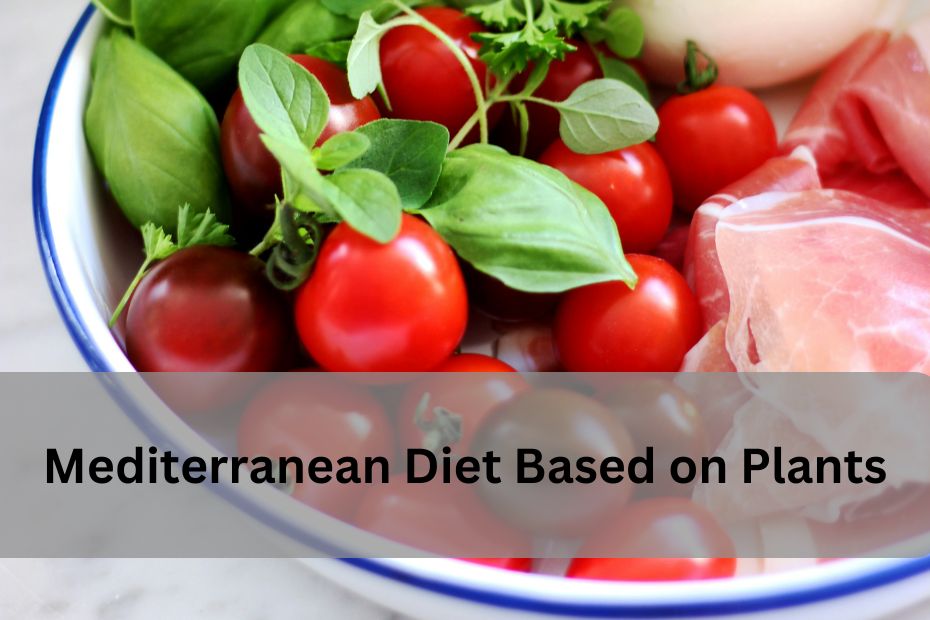The plant-based Mediterranean diet represents a wholesome approach to nutrition that emphasizes the consumption of plant-derived foods while integrating key principles of the traditional Mediterranean diet. This dietary pattern is celebrated for its numerous health benefits, ranging from heart health and weight management to overall well-being. This article delves into the components of the plant-based Mediterranean diet, its nutritional foundations, scientific evidence supporting its health benefits, practical tips for adoption, and its role in promoting sustainable eating practices.
Mediterranean Diet Based on Plant
The plant-based Mediterranean diet builds upon the foundation of the traditional Mediterranean diet, which originated from the culinary practices of countries like Greece, Italy, and Spain. It emphasizes:
- Abundant Fruits and Vegetables: A rich variety of seasonal produce, providing essential vitamins, minerals, and antioxidants.
- Whole Grains: Such as whole wheat, barley, oats, and brown rice, offering sustained energy and fiber.
- Healthy Fats: Primarily from olive oil, nuts, and seeds, known for their heart-healthy benefits and anti-inflammatory properties.
- Legumes and Pulses: Including beans, lentils, and chickpeas, excellent sources of protein, fiber, and micronutrients.
- Herbs and Spices: Used liberally to flavor dishes and reduce the need for salt.
- Moderate Consumption of Dairy and Poultry: Dairy products like yogurt and cheese, and lean proteins like poultry, complement the predominantly plant-based meals.
- Limited Red Meat: Consumed sparingly, with a focus on leaner cuts of meat.
This dietary approach is complemented by regular physical activity and a balanced lifestyle, reflecting the Mediterranean region’s cultural values of communal dining and enjoyment of food.

Nutritional Foundations of the Plant-Based Mediterranean Diet
- Plant-Derived Nutrients: The abundance of fruits, vegetables, whole grains, and legumes in this diet provides essential vitamins, minerals, and phytonutrients crucial for overall health and vitality.
- Healthy Fats and Omega-3s: Olive oil, nuts, and seeds are primary sources of healthy fats, including omega-3 fatty acids, which support heart health, brain function, and inflammation reduction.
- Fiber-Rich Foods: Whole grains, legumes, and vegetables contribute to dietary fiber intake, promoting digestive health, satiety, and blood sugar regulation.
- Antioxidants and Polyphenols: Found in colorful fruits and vegetables, these compounds help combat oxidative stress and inflammation, supporting immune function and cellular health.
Scientific Evidence Supporting Health Benefits
Numerous studies highlight the health benefits associated with the plant-based Mediterranean diet:
- Cardiovascular Health: Research published in “The New England Journal of Medicine” and “European Journal of Nutrition” shows that adherence to this diet reduces the risk of heart disease and stroke.
- Weight Management: Studies in “The Journal of Nutrition” and “Obesity Reviews” indicate that the plant-based Mediterranean diet supports healthy weight loss and maintenance.
- Diabetes Prevention and Management: Evidence from “Diabetes Care” and “Nutrients” suggests that this dietary pattern improves insulin sensitivity and glycemic control.
- Cognitive Function: Research in “The American Journal of Clinical Nutrition” and “Alzheimer’s & Dementia” links the Mediterranean diet to enhanced cognitive performance and reduced risk of cognitive decline.
Practical Tips for Adopting the Mediterranean Diet
Incorporating the plant-based Mediterranean diet into daily life is achievable with these practical strategies:
- Focus on Variety: Explore a diverse range of fruits, vegetables, grains, and legumes to maximize nutrient intake.
- Cook with Olive Oil: Use olive oil for cooking, salad dressings, and dips to harness its health benefits.
- Include Nuts and Seeds: Enjoy nuts and seeds as snacks or add them to salads and yogurt for added crunch and nutritional value.
- Experiment with Plant Proteins: Incorporate beans, lentils, and chickpeas into soups, stews, and salads as plant-based protein sources.
- Season with Herbs and Spices: Enhance flavors with Mediterranean herbs like basil, oregano, thyme, and rosemary instead of salt.

Sustainability and Environmental Impact
The plant-based Mediterranean diet promotes sustainable eating practices by:
- Reducing Carbon Footprint: Emphasizing plant-derived foods over animal products lowers greenhouse gas emissions and water usage.
- Supporting Local Agriculture: Choosing seasonal produce and whole grains supports local farmers and reduces food miles.
- Minimizing Food Waste: Planning meals and utilizing leftovers creatively helps minimize food waste and supports sustainable consumption.
Conclusion
The plant-based Mediterranean diet offers a balanced and nutritious approach to eating that promotes overall health and well-being. By emphasizing plant-derived foods rich in vitamins, minerals, and antioxidants, while incorporating healthy fats and lean proteins in moderation, this dietary pattern supports cardiovascular health, weight management, and cognitive function. Adopting the plant-based Mediterranean diet not only benefits individual health but also aligns with sustainable eating practices that contribute to environmental preservation. Whether you’re aiming to improve your health, manage weight, or embrace sustainable living, the plant-based Mediterranean diet provides a practical and delicious pathway to holistic wellness.
| Homepage | Click Here | | |
| Food | Click Here |
